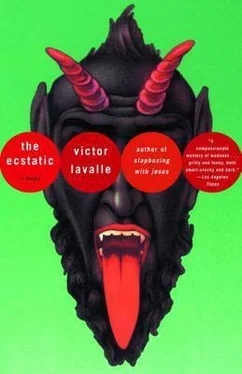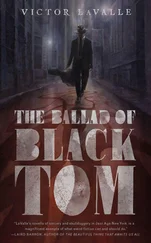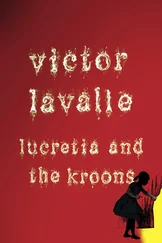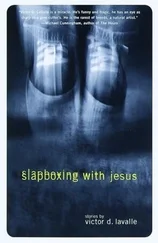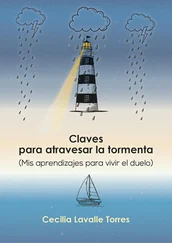Grandma agreed. She pressed one thin finger on the very top of my round head. — I don’t think you would.
When Grandma started coughing I went and bought water; when she was ready to move I pulled her soles from the heel loops of the wheelchair then flipped the footrests up. Helped her out of the aisle into the auditorium seat.
There were so many women! I don’t mean that in a horny way. It just seemed like people had stopped having sons.
In the aisle in front of ours five women sat together in different dresses, but the same strange smiles. A few generations of lop-sided grins. The youngest, on the aisle, chewed gum loudly and swallowed it even louder. Making a satisfied, — huhhh-, each time. Then went back into her small handbag, unwrapped another stick from its foil, and smacked again. I only hoped she wouldn’t do it during the show or I wouldn’t be able to hear.
In twenty minutes every row had filled except ours. Grandma was in the aisle seat with her wheelchair folded beside her. Then me next to her.
White masking tape had been pulled across the ten chairs next to me. ‘Reserved’ was written on plain white sheets of paper and left on each place.
It was Grandma, me, ten open seats, and free access to these double doors. An emergency exit. The only one not decorated with servicemen.
I stood up. I went over. I touched the doors expecting to hear an alarm, but none came. They’d open easily. I pressed my hand to one.
— Not yet, a voice whispered from the other side.
It was a big auditorium. This stage wasn’t like the one in the testifying tent. It had red curtains that made a heavy thump when they were pulled together. I heard the noise from my seat and I was seventy-five feet away. A stage crew practiced opening and closing them a few times.
The stage had two sets of red curtains, one in the rear as a backdrop and one to the fore that would part during the show. When both sets were open we could see far back into the lungs of the theater.
Where a band of four boys with longish hair down over their shoulders wore dungarees with black jackets. Kids who’d rather play Bark at the Moon than Some Enchanted Evening .
Perfume floated up from the audience. The air above our heads was a pinkish-purple mist.
The lights went out and I wasn’t prepared. I thought they’d make an announcement. But the show just began without warning. I wondered how Uncle Arms was going to get in touch with my sister. Send her a sceptor in the mail?
For fifty seconds we sank into the gloom. I heard the curtains squeak as they closed in the dark. Hiding musicians and wires. The band, invisible now, dragged into a peppy tune. A doo-wop beat.
Small spotlights appeared, one then the next, each the circumference of a tea cup. A hundred of them twirled against the red curtain.
Our MC entered from the left even while the lights kept mulling around the far right. He cleared his throat, then the unseen techie swung his brights over. Once lit, the MC smiled.
— Family and friends! he said.
He wore a tuxedo and sang some awkward lyrics.
Miss Innocence, Eastern United States, 1995
You darling star
No mere happenstance or perfect chance
Have saved you until tonight.
He was very good, crooning these words so seriously that they seemed to make sense. His talent was like sausage, filling and familiar. A rich, deep voice. Reasonably tall and just barely stocky. Not handsome so much as pleasant.
The MC said, — We are here tonight because of some very talented and wonderful young ladies, aren’t we? Let’s hear it! He was so excited that he hopped.
— Yes folks, we’ve brought ladies from Florida to Nantucket to compete for the chance to represent the Eastern seaboard of the United States in the National Miss Innocence America next year.
He was a motivational speaker with top-shelf bombast. Introduced himself as Maximilian Duvet. — Tonight we’ve got a whole lot going on, don’t we?
The crowd responded, but without vim.
So he asked again. — Come on folks. Don’t we?!
He had no time for passive audiences, so he gave us a certain practiced grin followed by a handful of simple dance moves. He didn’t seem expert, only excited. Giving us license to be happy. When he did that it was as if he’d cracked our atomic bonds. We, and I include myself, whistled, clapped, emitted energy.
He grinned, punched his hand in the air. — Yes! he yelled.
The small spotlights hadn’t stopped fluttering across Maximilian’s face since he’d started speaking. More than a distraction they were making him dizzy. — Okay. He waved his hands. Fellas. Guys. Lights!
The audience laughed.
— They’re more excited than I am!
From the ether a dirgy song began, mostly bass and faint guitar.
— Let’s take a moment to remember, Maximilian said. Never forget, he told us. Never forget.
Here came my battalion of ghosts from Friday night; the boys who’d been so kind to clean up after me. The Confederates dressed and wooden sabers drawn. Serious little toys. One of them walked out of formation to stand at Maximilian’s side.
Maximilian asked, — Who might you be?
— My name is Lewis Tilgham Moore, Colonel of the 31st Virginia Militia of Frederick County.
Max kneeled because the boy looked foolish standing on his toes, off balance with the heavy scabbard at his right hip. — And where are you going?
— We are off to Harper’s Ferry, the boy said.
— And do you think there’s trouble?
— Some trouble, but nothing that can’t be fixed, I expect!
The kid was a natural actor; easy with his lines, serious without being a boob. His voice was high-pitched, but he spoke slowly and that made him seem mature. The boy rejoined the others and they marched slowly to the middle of the stage, where they turned from profile to face the crowd straight.
I wondered about this volunteer militia; not as a force, but the young men who took a rail one October afternoon in 1859 expecting nothing more than a skirmish. I’d read the newsletter their chaperone gave me. The boys went off to Jefferson County then to the federal armory at Harper’s Ferry where John Brown, with a piddling force of eighteen, hoped to spark a slave revolt; within two years there was this Civil War.
It’s only after a hundred years that crusades seem inevitable; after all that time the unjust are easily named. But in the midst of history who knows his role?
— You know folks, I’d like to take a minute to be a bit candid with you.
Maximilian was of the crowd now; he had walked down from the stage. Portable microphone held, he stood at the first row. One big but not bright light rested on his shoulder.
— Lately, he said, there have been terrible things happening to our industry. Little Pepper Miller accusing her father of wrongdoing on that Current A fair TV show.
Hearing the name Pepper Miller the whole crowd swayed backward in their seats. One unwelcome wind had come from behind the curtains to blow across us plains.
— But I want to tell you, he said, all of you. That I’ve been working pageants for thirty-five years. He smiled. That’s right, three-five. I know I don’t look it. At least I hope I don’t. Do I?
Who could resist? I wanted to applaud. We liked him.
— Yes!
— But seriously. I’ve been on this train a very long time and I want you to understand something. Tabloids and television shows come around to film us. They ridicule the efforts these young ladies make. Of the time and expense not just to them, but to the entire family. Some groups even say these young women are being taken advantage of, but let me point out that no privately run organization in the world gives more girls college scholarships than the pageants of this country.
Читать дальше
